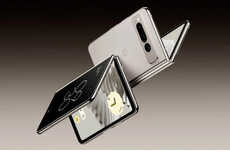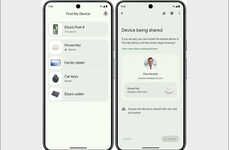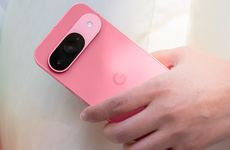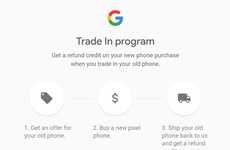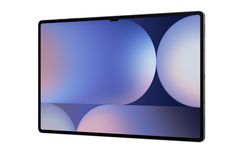
References: mercurynews
As anticipated, Google broke major news on the gPhone today: there will be no gPhone, or any Google-branded phone.
"The big news is that Google has gone generic, offering free software to anyone who wants it under the relaxed terms of an open-source license, which will allow developers to view the source code for that software. This also means there will not be a 'gPhone,' or any sort of phone with the Google brand on it," the Mercury News reported.
"'Today's announcement is more ambitious than any single 'Google Phone' that the press has been speculating about,' Google Chief Executive Eric Schmidt said in a statement. 'Our vision is that the powerful platform we're unveiling will power thousands of different phone models.'"
There are already 33 companies backing the Open Handset Alliance including Motorola, Samsung, LG and HTC. New phones containing the Google software will be launched in mid-2008. None of the phones will be branded by Google, however.
How will they make money?
"Rubin said Google hopes to make money by increasing the number of people who are exposed to its Internet advertising. Currently there are about 1.5 billion people in the world who can see Google's advertising on personal computers. In comparison, an estimated 3 billion people use mobile phones," the Mercury News reported.
'We are talking about a market that is twice the size,' Rubin said. While few mobile phone customers use their devices to search the Internet, Google wants to change that by making the experience much easier and more similar to using a PC."
"Rubin said the new mobile browser can display content from regular Web pages, rather than just the pages specifically customized for mobile gadgets. And, he said, Google's ads, which run alongside its search results and on Web pages, will appear in exactly the same way on the new mobile phones as they do on PCs."
For our original post, check out the following:
"The big news is that Google has gone generic, offering free software to anyone who wants it under the relaxed terms of an open-source license, which will allow developers to view the source code for that software. This also means there will not be a 'gPhone,' or any sort of phone with the Google brand on it," the Mercury News reported.
"'Today's announcement is more ambitious than any single 'Google Phone' that the press has been speculating about,' Google Chief Executive Eric Schmidt said in a statement. 'Our vision is that the powerful platform we're unveiling will power thousands of different phone models.'"
There are already 33 companies backing the Open Handset Alliance including Motorola, Samsung, LG and HTC. New phones containing the Google software will be launched in mid-2008. None of the phones will be branded by Google, however.
How will they make money?
"Rubin said Google hopes to make money by increasing the number of people who are exposed to its Internet advertising. Currently there are about 1.5 billion people in the world who can see Google's advertising on personal computers. In comparison, an estimated 3 billion people use mobile phones," the Mercury News reported.
'We are talking about a market that is twice the size,' Rubin said. While few mobile phone customers use their devices to search the Internet, Google wants to change that by making the experience much easier and more similar to using a PC."
"Rubin said the new mobile browser can display content from regular Web pages, rather than just the pages specifically customized for mobile gadgets. And, he said, Google's ads, which run alongside its search results and on Web pages, will appear in exactly the same way on the new mobile phones as they do on PCs."
For our original post, check out the following:
Trend Themes
1. Open-source Mobile Software - Google's Open Handset Alliance offers free software to anyone under an open-source license, presenting potential opportunities for businesses that want to develop and customize mobile software.
2. Internet Advertising on Mobile Devices - Google hopes to generate revenue by increasing the number of people who are exposed to its Internet advertising through mobile devices, which is a potentially lucrative market to consider.
3. Unified Mobile and PC Experience - The unveiling of Google's powerful platform creates a potentially revolutionary unified mobile and PC experience by making mobile search engine experiences much easier.
Industry Implications
1. Mobile Devices and Smartphones - The Open Handset Alliance will launch new smartphones and mobile devices that can customize Google's open-source software, and present opportunities for phone manufacturers and app developers.
2. Digital Advertising - The Google platform's intention to increase mobile exposure to its Internet advertising will require businesses to adapt their digital advertising strategies for the mobile market.
3. Mobile Browser Software - The unveiling of Google's mobile browser software creates disruptive opportunities for businesses that want to develop software that displays content from regular Web pages, rather than just the ones specifically customized for mobile gadgets.
2.3
Score
Popularity
Activity
Freshness


